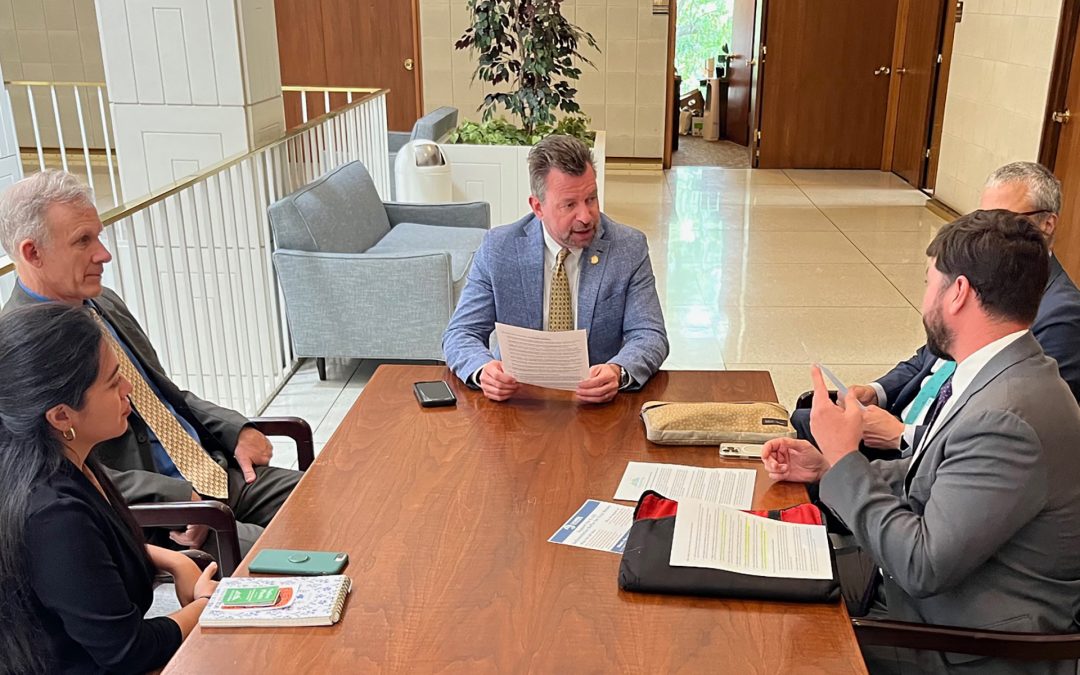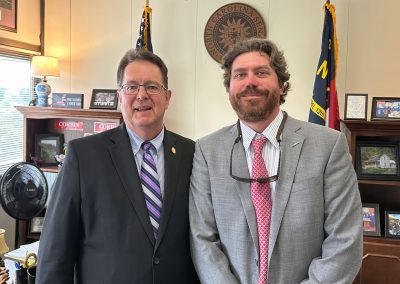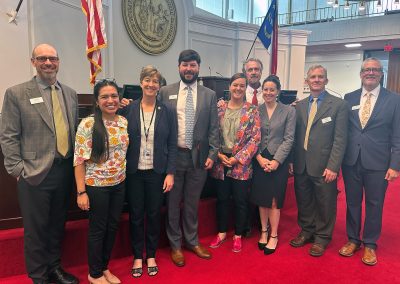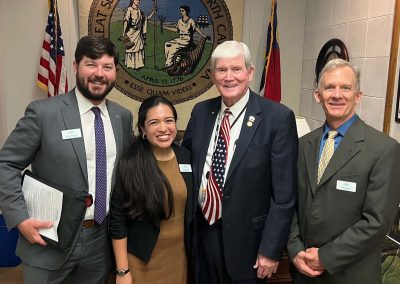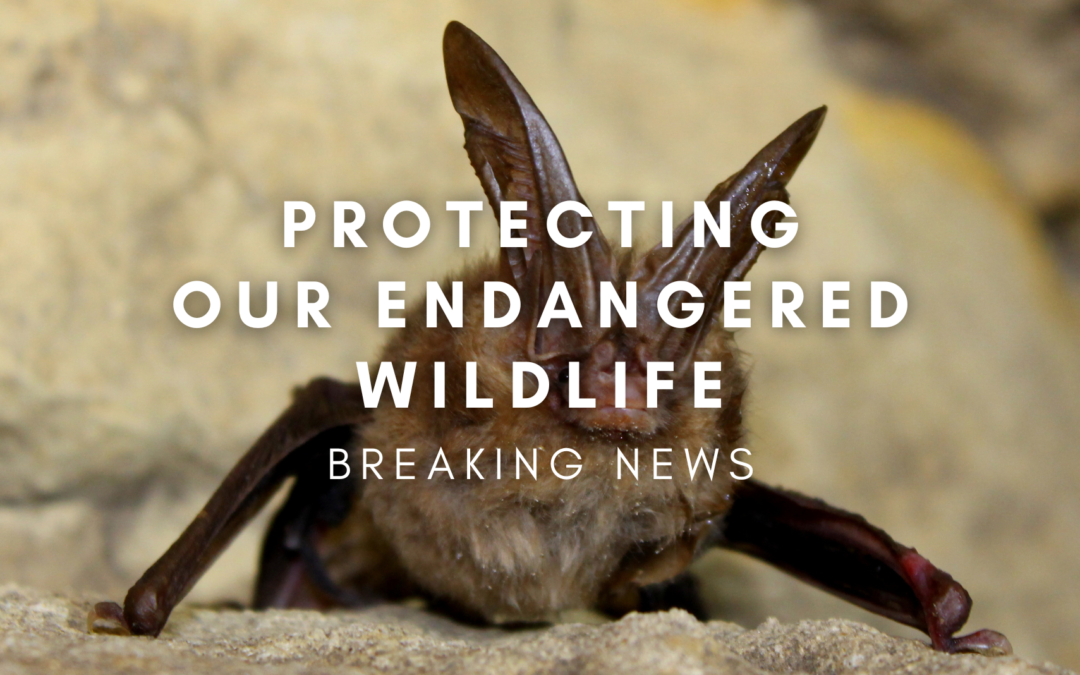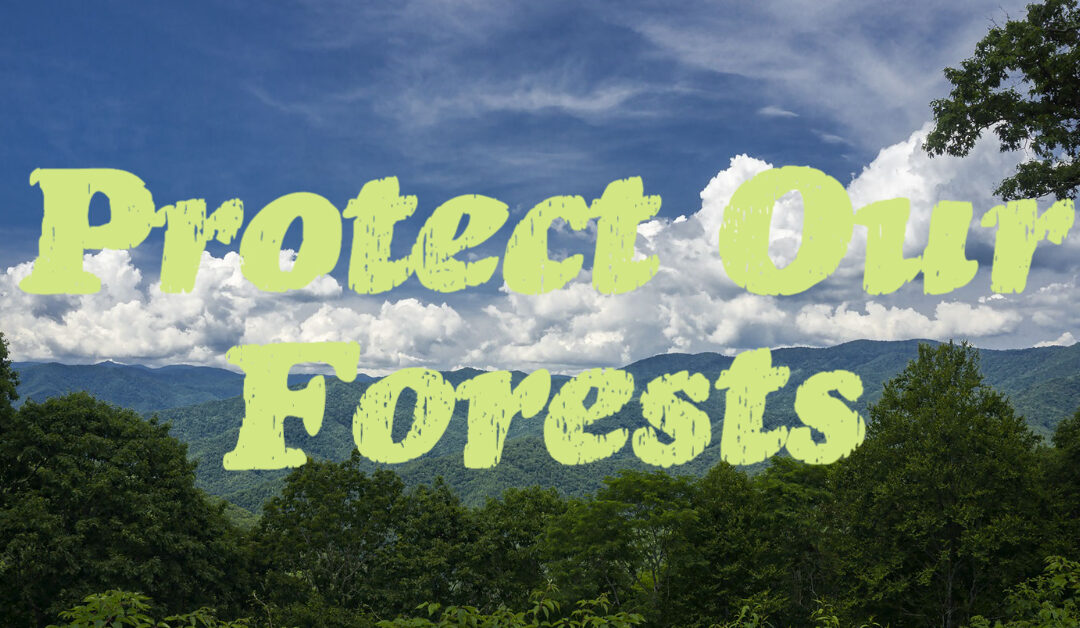
U.S. Forest Service abandons plans to recklessly log sensitive area of Nantahala National Forest after lawsuit
U.S. Forest Service abandons plans to recklessly log sensitive area of Nantahala National Forest after lawsuit
ASHEVILLE, N.C. — In response to a lawsuit from a coalition of conservation groups, the U.S. Forest Service announced it is scrapping plans to log an important area of North Carolina’s Nantahala National Forest near the Whitewater River.
The announcement, which was published in a letter last week, comes nearly six months after the Southern Environmental Law Center, on behalf of the MountainTrue, Center for Biological Diversity, Chattooga Conservancy, Defenders of Wildlife, and Sierra Club, sued the Forest Service over the logging plans. The lawsuit would not have prevented the agency from implementing other parts of the Southside timber project.
The agency offered to abandon its logging proposal in the area if the coalition of conservation groups dismissed the lawsuit, which they anticipate doing later this week.
The area spared from logging sits above stunning waterfalls, boasts towering trees, and shelters rare plants in a unique, wet microclimate. The Forest Service had slated it for heavy logging in the controversial Southside timber project.
PHOTOS: Area of proposed logging project
Because of the area’s incredible ecological value and stunning beauty, the Forest Service designated it as a “Special Interest Area” in the recently published Nantahala-Pisgah Forest Plan. Destructive projects, like logging and roadbuilding, are significantly restricted in Special Interest Areas. The Forest Service’s previous decision to move forward with the logging project contradicted its own decision to protect the area, undermined one of the few things its new Forest Plan got right, and violated federal law.
Below are quotes from conservation groups about the resolution of the lawsuit:
“We have been pointing out problems with the agency’s logging plans for this area for years. It’s a shame we had to take them to court to achieve this outcome, but we’re glad this incredible area is no longer on the chopping block,” Patrick Hunter, Managing Attorney of the Southern Environmental Law Center’s Asheville Office, said. “Unfortunately, the new Forest Plan sets us up for more of these conflicts in the future. National forests in western North Carolina—and the people who enjoy them—deserve better.”
“This wild and beautiful forest was saved because people spoke up to defend it,” said Will Harlan, Southeast director at the Center for Biological Diversity. “Even though the public overwhelmingly supports protecting special places like the Pisgah and Nantahala National Forests, the new Forest Plan tragically fails to do that. Unless the Plan is changed to protect important forests and streams, more legal fights are probably going to be the only way to ensure that the public’s voice is heard.”
“We applaud the Forest Service for agreeing to drop their illegitimate plan for logging in a Special Interest Area next to the Whitewater River. Regretfully, it took filing a lawsuit and six months of negotiations to prompt the recalcitrant Forest Service to abide by federal law, to save one unique stand of our national forest,” said Nicole Hayler, Director of the Chattooga Conservancy. “The rest of the damaging Southside Project still is on the chopping block, while the new Nantahala-Pisgah Forest Plan is on deck with its mandates for escalating logging in sensitive areas—fueling more controversy and conflict that further undermines public trust in Forest Service managers.”
“We are thrilled to see the U.S. Forest Service commit to upholding the law,” said Jane Davenport, senior attorney for Defenders of Wildlife. “It’s unfortunate that it took a lawsuit to get there, but this commitment ensures a future for vulnerable species whose habitat would have been destroyed by logging.”
“We are pleased that the Forest Service chose to walk away from logging that is incompatible with sound stewardship of the Whitewater River Special Interest Area. It’s unfortunate that it took a lawsuit to reach this outcome, but we thank the Forest Service for coming to the right conclusion,” Josh Kelly, Public Lands Biologist at MountainTrue, said.
“The decision by the Forest Service is the right one, given the recent federal emphasis on old growth protection and the importance of recognizing North Carolina’s Natural Heritage sites. Unfortunately, it took legal action for the agency to make the right decision,” said David Reid, Sierra Club National Forest Issue Chair.
Media Contacts:
SELC: Eric Hilt, 615-622-1199, ehilt@selctn.org
Center for Biological Diversity: Will Harlan, wharlan@biologicaldiversity.org
Chattooga Conservancy: Nicole Hayler, info@chattoogariver.org
Defenders of Wildlife: Jay Petrequin, jpetrequin@defenders.org
MountainTrue: Karim Olaechea, 828-400-0768, karim@mountaintrue.org
Sierra Club: David Reid, daviddreid0@gmail.com
###

